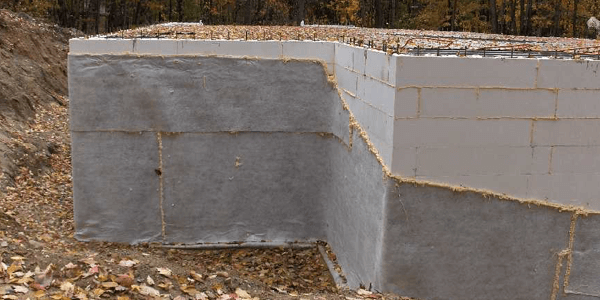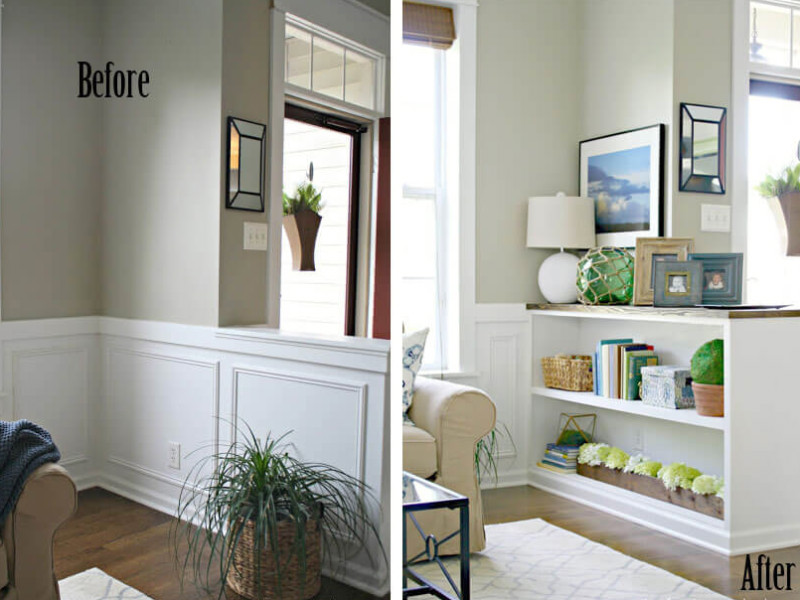
How Water Can Get into Your Basement
Finding water in your basement is never good, and it can be difficult to figure out where the water is coming from. There are many causes of basement flooding, though the most common is poor grading or sloping. When the ground surrounding your basement slopes downhill towards your basement, it forces your basement to act as a dam (https://www.thespruce.com/easy-outside-repairs-for-wet-basement-1824711), resulting in a buildup of pressure against the walls of your basement. The water continues to put pressure on the walls until it can find space to flow through. If there are any cracks - even tiny ones - in the walls of your basement, you'll end up with water in your basement.
Even if you don't have any cracks in your basement, the pressure from the water can create cracks or make small cracks even bigger, resulting in more flooding and more water damage.
Back to topPoints of Entry
Here are the most common points of entry in a basement for water to leak through:
-

-

Cracks in the walls
-

Cracks in the flooring
-

Broken or burst pipes or water heater
-

Improperly Sealed Joints
Humidity VS Leakage
Finding water in your basement doesn't always mean you have cracks or improper grading. Instead, you could have a humidity problem in your basement. According to ENERGY STAR (https://www.energystar.gov/index.cfm?c=home_solutions.hm_improvement_dampbasement), dampness in a basement can be caused by a number of factors other than water leakage:
Cost for framework:
- • Everyday activities (cooking, showering, drying clothes, etc.)
- • Moisture from the ground making its way through a concrete foundation
- • Condensation on cold walls or floors during humid months
If you have a humidity problem in your basement, the simplest step to take is to get a dehumidifier. You should also check for any air leaks in your basement to keep humid air from entering.
Back to topEffects of Water Damage
So why worry about water in your basement? Even the smallest bit of water can cause damage to your basement. Constantly damp basements - whether from humidity or leaks - creates a breeding ground for mold and mildew, which is incredibly hazardous to your health (https://www.cdc.gov/mold/dampness_facts.htm). Water can also damage any belongings you have in your basement. Excess water can damage the structural integrity of your basement as well, resulting in an unsafe foundation for your home. That's why waterproofing your basement and taking care of any humidity problems your basement may have are extremely important.
Back to topBasement Waterproofing Costs
Waterproofing your basement is not the cheapest service you can get. The average cost is $3,000 - $5,000 (https://www.fixr.com/costs/basement-waterproofing). However, the cost of basement waterproofing is invaluable in the long run. Getting your basement waterproofed will save you tons of money in water damage restoration costs, and foundation repair costs down the road. Also keep in mind that if you don't get your basement waterproofed and end up with a flooded basement, all of your personal belongings that are in your basement like old photos or books or furniture will most likely be damaged beyond repair. Basement waterproofing is a necessary service to keep your home healthy, safe, and livable.
Back to topReferences
- "Easy Outside Repairs for a Wet Basement". The Spruce. Retrieved 2 February 2018.
- "Leaky Basements: Causes and Solutions". HGTV. Retrieved 2 February 2018.
- "Damp Basement". ENERGY STAR. Retrieved 2 February 2018.
- "Facts About Mold and Dampness". CDC. Retrieved 2 February 2018.
- "Basement Waterproofing Cost". Fixr. Retrieved 2 February 2018.
Select your Basement Waterproofing project
Service Cost Calculator
Enter service and
zip code to view
cost breakdown




















![Summer Home Maintenance Checklist [2024]](https://images.homeyou.com/website/base/f75/ce7/35a/1080-591-summer-maintenance-checklist-for-homes.jpg)
